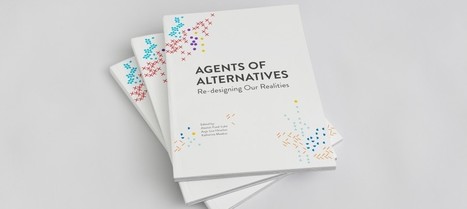Agents of Alternatives – Re-designing Our Realities is an independently published open book exploring the visions, actions, tools and impacts of change agents, thinkers and ‘happeners’ (those who make things happen!). It shows the creative processes and tools for designing positive societal transitions. These transitions are revealed by showing the new hybrid relationships being forged between alternative approaches to learning, living, making, socialising, thinking and working.
Research and publish the best content.
Get Started for FREE
Sign up with Facebook Sign up with X
I don't have a Facebook or a X account
Already have an account: Login
on peer-to-peer dynamics in politics, the economy and organizations
Curated by
jean lievens
 Your new post is loading... Your new post is loading...
|
|














